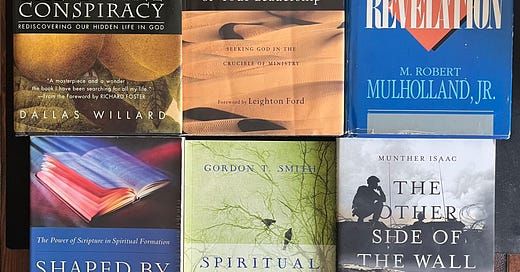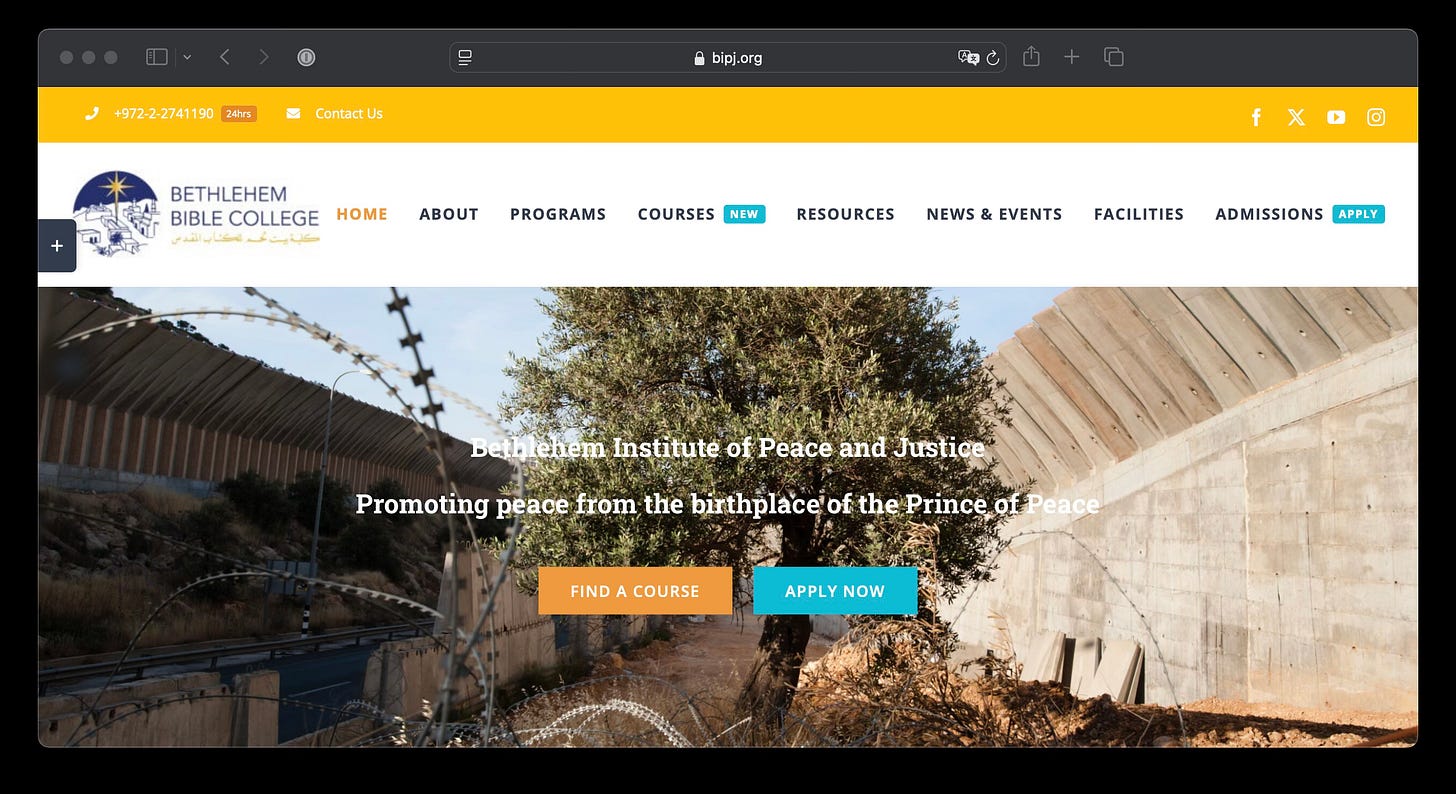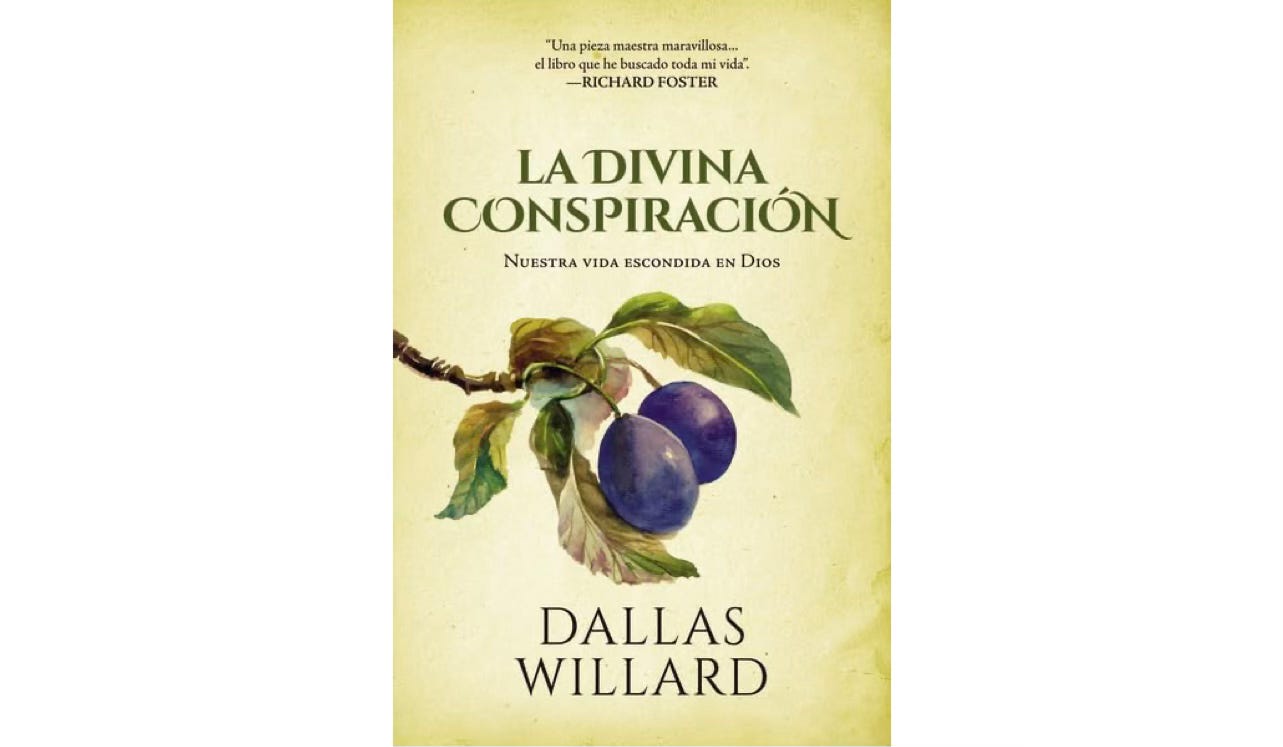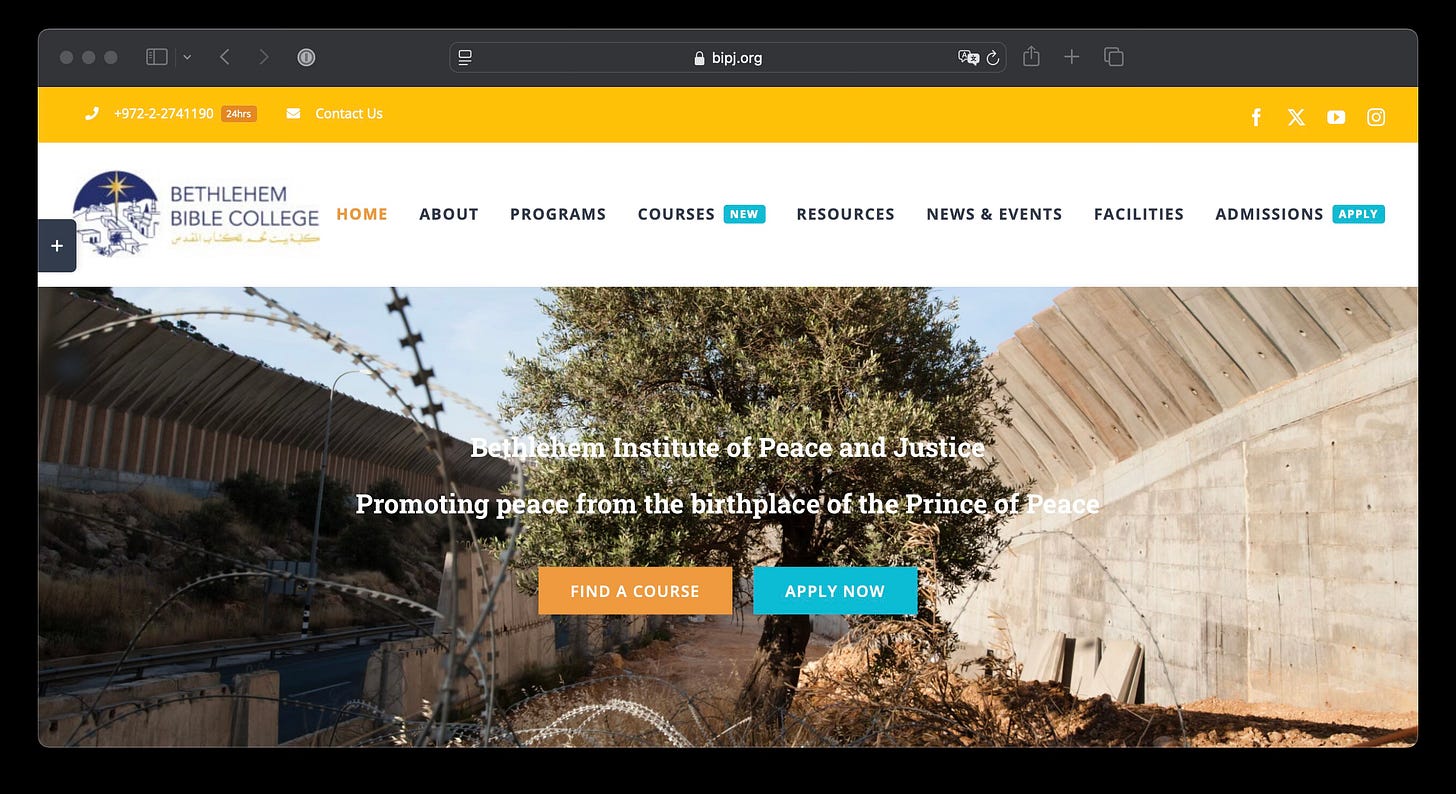Be My Classmate in Revelation / Sea mi compañero de clase en el Apocalipsis
I'm taking an online class on Revelation, but I'm the only one in it! So, how about tagging along?
As I look back on my adult life—as a Christian and a very bookish person—I can trace some of the most significant turning points to particular books I read at significant moments. Each one opened up a new way of seeing things and new directions to pursue. The list could keep expanding, but here are some of the major markers:
As a senior in college, a professor handed our class an article by Dallas Willard, which was my introduction to spiritual formation. That led me to his The Divine Conspiracy, and it’s no exaggeration to say that my understanding of what it means to be a Christian fundamentally changed with that book. Every turning point since has flowed out of this first one.
Because of Dallas’s influence, I eventually encountered the work of Ruth Haley Barton. The first book I read after agreeing to join a Transforming Community was her Strengthening the Soul of Your Leadership. It helped me understand why I cared about ministry so deeply—and why it was draining the life out of me. It opened up new possibilities for what ministry could look like.
Because of Ruth’s influence, I began to re-engage with Robert Mulholland. I was hooked by his Shaped by the Word, and then by his teaching and commentary on Revelation.
Through Ruth, I also discovered spiritual direction—first I was tremendously helped by receiving it for several years and then also studying it with Wil Hernandez and, later, beginning to offer it. One of the first books I read in that journey was Gordon T. Smith’s Spiritual Direction, and from then I have wanted to read everything Gordon writes.
These threads came together when I began a PhD program in spiritual formation, with Gordon as my supervisor as I studied Mulholland’s contribution to the field. During one directed study, Gordon introduced me to the work of Munther Isaac of Bethlehem Bible College, through his book The Other Side of the Wall.
Munther’s voice opened up a whole new dimension. Ever since, I’ve continued reading the voices of Palestinian Christians. My process of seeing things differently and new pursuits is still relatively young on this point.
Which brings me to the series of posts I’m introducing here.
When I discovered that Bethlehem Bible College offers online courses in English, I was intrigued. When I saw that one of them was self-paced and combined two of my deep interests—Palestinian Christianity and the book of Revelation—I jumped at the chance. (The course is titled “Apocalypse, Empire, and Palestine in the Book of Revelation.”)
The course is globally accessible, and although it looks like quite a few students have gone through it in the past, it seems I’m the only one active in the class for now.
This is where you come in, dear reader.
Since I don’t have classmates, and discussion is such an important part of learning, I’d like to extend part of the course here. Starting next week—and then about every other week for a while—I’ll be responding to some of the course’s discussion questions, adapting my answers to this Substack format, and inviting your thoughts. (This isn’t a substitute for taking the course, but it might pique interest for some of you in what they have available.)
To get us started, I’d love your help with one question that will matter for my response to the first prompt:
If you were to describe in a phrase or two what the book of Revelation is about, what would you say?
[Click here for more posts related to this course.]
Introducción a una serie sobre el Apocalipsis
Estoy tomando una clase en línea sobre el Apocalipsis, ¡pero soy el único en ella! ¿Qué te parece si me acompañas?
Cuando miro hacia atrás en mi vida adulta -como cristiano y como persona muy aficionada a la lectura-, puedo rastrear algunos de los puntos de inflexión más significativos en libros que leí en momentos importantes. Cada uno de ellos me abrió una nueva forma de ver las cosas y nuevas direcciones que seguir. La lista podría seguir ampliándose, pero he aquí algunos de los más importantes:
En mi último año de universidad, un profesor nos dio un artículo de Dallas Willard, que fue mi introducción a la formación espiritual. Eso me llevó a su La divina conspiración, y no es exagerado decir que mi comprensión de lo que significa ser cristiano cambió fundamentalmente con ese libro. Desde entonces, todos los puntos de inflexión se han derivado de este primero.
Gracias a la influencia de Dallas, acabé conociendo la obra de Ruth Haley Barton. El primer libro que leí después de aceptar unirme a una Comunidad de Transformación fue Fortalecer el alma de su liderazgo. Me ayudó a entender por qué me importaba tanto el ministerio y por qué me estaba quitando la vida. Me abrió nuevas posibilidades sobre cómo podría ser el ministerio.
Gracias a la influencia de Ruth, empecé a reencontrarme con los libros de Robert Mulholland. Me enganchó su Formado por la palabra, y luego su enseñanza y comentario sobre el Apocalipsis.
A través de Ruth, también descubrí la dirección espiritual: primero me ayudó enormemente recibirla durante varios años y luego estudiarla con Wil Hernández y, más tarde, empezar a ofrecerla. Uno de los primeros libros que leí en ese viaje fue Dirección Espiritual de Gordon T. Smith, y desde entonces he querido leer todo lo que Gordon escribe.
Estos hilos se unieron cuando comencé un programa de doctorado en formación espiritual, con Gordon como supervisor, mientras estudiaba la contribución de Mulholland a este campo. Durante un estudio dirigido, Gordon me presentó la obra de Munther Isaac, del Instituto Bíblico de Belén, a través de su libro Al otro lado de la paréd.
La voz de Munther abrió toda una nueva dimensión. Desde entonces, he seguido leyendo las voces de los cristianos palestinos. Mi proceso de ver las cosas de otra manera y de nuevas búsquedas es todavía relativamente joven en este punto.
Esto es lo que me lleva a la serie de posts que presento aquí.
Cuando descubrí que el Instituto Bíblico de Belén ofrecía cursos de inglés en línea, me quedé intrigado. Cuando vi que uno de ellos era autodidacta y combinaba dos de mis intereses más profundos -el cristianismo palestino y el libro del Apocalipsis- no dejé pasar la oportunidad. (El curso se titula «Apocalipsis, Imperio y Palestina en el libro del Apocalipsis»).
El curso es de acceso global, y aunque parece que un buen número de estudiantes han pasado por él en el pasado, parece que soy el único activo en la clase por ahora.
Aquí es donde entras tú, querido lector.
Como no tengo compañeros de clase, y el diálogo es una parte tan importante del aprendizaje, me gustaría ampliar parte del curso aquí. A partir de la semana que viene -y luego cada dos semanas durante un tiempo- responderé a algunas de las preguntas del curso, adaptando mis respuestas a este formato de Substack, e invitando a los lectores a discutir. (Esto no sustituye la realización del curso, pero puede despertar el interés de algunos de ustedes por lo que tienen disponible).
Para empezar, me gustaría que me ayude con una pregunta que será importante para mi respuesta a la primera pregunta:
Si tuviera que describir en una o dos frases de qué trata el libro del Apocalipsis, ¿qué diría?
[Haga clic aquí para ver más entradas relacionadas con este curso.]







Daniel,
I loved reading the series of events/people/books that brought you to this course and your invitation to tag along. The course looks so good! And I just took a picture with Gordon Smith and wanted to include it here but it won't let me so I'll send it via email and then delight in the series of events that are crossing our paths once again.
:) Vanessa
Revelation is a divinely inspired book of John's description of what was "revealed" to him regarding God's interpretation of a church's true intention when claiming to represent God. In God's mercy, He desires to clarify our journey with His Truth.